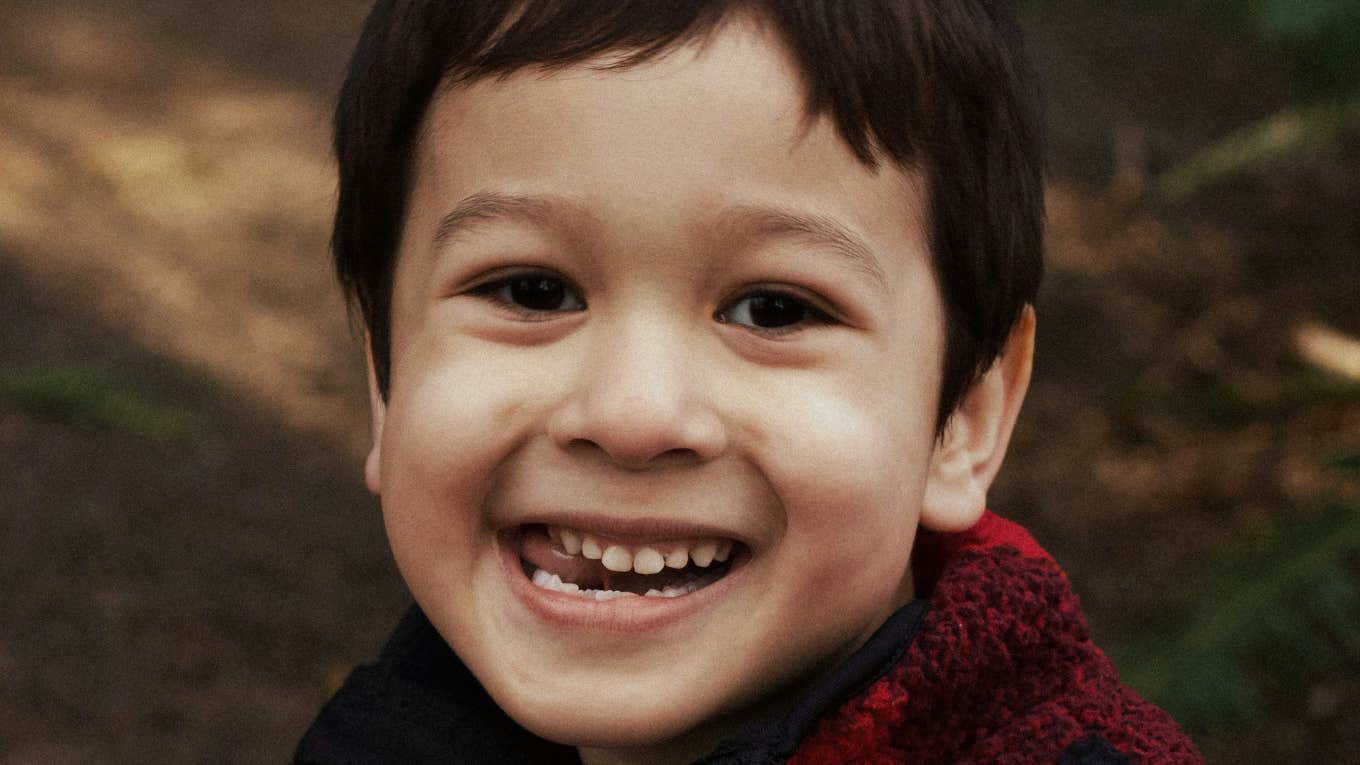Your Parents Did A Solid Job If They Taught You This One Key Concept
It starts with knowing how and why not to push your agenda on your kids.
 Aedrian Salazar | Unsplash
Aedrian Salazar | Unsplash Certainly, try to get outside your comfort zone for the sake of your kids. But also, own when you can’t.
There are many aspects of life with kids that are just plain difficult. For example, it is difficult to engage with a baby for an entire day without a break. It is difficult when your child drops a nap.
It is difficult to host playdates, be “on” for the duration of them, and clean up afterward. Most of these things are more difficult for Highly Sensitive People (HSPs), people with multiple kids, people with other mental health issues, people without family/paid help, or people whose spouses work many hours or travel for work.
Unfortunately, parents in today’s society feel terribly guilty about ever needing a break, having any emotional or mental issues, or reacting with anger or impatience to a child. We feel so awful about any less-than-perfect parenting behavior that we may distort reality when discussing our actions with other people, including our kids, and even ourselves.
Your parents did a solid job if they taught you this one key concept
 fizkes / Shutterstock
fizkes / Shutterstock
For example, we may say, “TV is educational for kids” instead of “I need a break.” (For the record, I think both things can be true and valid.) Or a mom may say to an older kid, “You have too many extracurriculars and need to focus on school,” when the reality is that she just can’t face driving him to one more activity. Or, “It’s not safe to climb that high,” when the reality is that your anxiety spikes out of control when a child climbs high, even though you know in your heart that your child ought to be able to try it.
You should not push your agenda on your kids.
It invalidates your children’s feelings and experiences for you to pretend that your viewpoint is the only worthwhile viewpoint, on any issue. Similar problems come when you start to lie to yourself and your child about why you’re prioritizing yourself and your mental health. So, here are some examples of what I think is healthy to say:
“I’m sorry, I am too tired to drive you to another after-school activity.”
“I get anxious when you climb that high. Maybe you can do that when Daddy is watching you.”
“I need you to go into your room for quiet time. I want to spend time with you later, but right now I need a break.”
Here are the counterpoints that are not as healthy:
“Kids need to focus on school, and you’d be too tired if you did three activities.”
“You’ll fall if you climb that high.”
“You need to nap, you’re tired.”
Even if you believe that your child is tired, or that they may fall, try hard to own your own part in why you are trying to change their behavior. If you dig deep enough, you will always come up with the honest reason why you are pushing your child in a certain direction. You may be pushing it out of consciousness, but you can uncover it, and once you do, you can openly own it, thereby modeling honesty and authenticity for your child (and you’ll also feel less guilty).
Some parents may say, But if the only reason I’m not driving my kid to swim practice is that I can’t get up that early, isn’t that me being a selfish parent? Look, I enthusiastically encourage you to get outside your comfort zone for the sake of your kids and yourself.
But everyone cannot do everything, especially if you are depressed, Highly Sensitive, or for any other reason.
If you just can’t do an activity, or can’t do it yet, admit it to your child and admit that your rule is about YOU.
Don’t invent some reason that your rule is “really” for your child’s sake. That is invalidating, crazy-making, and warps your child’s view of himself.
In the case of the three statements above, this child would begin to think of himself as an easily overwhelmed, clumsy person who doesn’t even know when he’s sleepy or not. And ironically, it is the mother who is easily overwhelmed, tired, and anxious! Which would be fine IF SHE ADMITTED IT.
 fizkes / Shutterstock
fizkes / Shutterstock
Go through the rest of your day on the lookout for rules that you make just for your own mental health. And when you find one, admit it loud and proud, without inventing a post-hoc rationalization for why it’s really better for your kid. Like:
“I am letting you play iPad because I need to sit down and relax for a few.” (vs “The iPad teaches you colors!” You can say this one too, but only after you say the “real” reason.)
“We are having cereal because Mommy is too tired to cook.” (vs “What are you complaining about? We had a big lunch.”)
“I yelled at you because I am feeling stressed, not because you did anything wrong. I’m sorry.” (Versus, “If you act rude to your sister, it makes me yell.”)
Remember to own your actions and apologize if they hurt anyone else.
If your child sees you actively taking responsibility for your own emotions and behaviors, your child will be able to do this themselves one day, without shame.
And they will be the kid who says, “Sorry I pushed you, I was in a bad mood” to their sister, or “Sorry I snapped at you, I had a rough day at work” to their spouse, or “I’m just not ready to be intimate yet” to their high school boyfriend or girlfriend. If you want a child to have no shame about their internal experiences, you must own your own, without rationalizing them away.
If you or somebody that you know is experiencing a mental health crisis, there is a way to get help. Call SAMHSA’s National Helpline at 1-800-662-HELP (4357) or text "HELLO" to 741741 to be connected with the Crisis Text Line.
Dr. Samantha Rodman Whiten, aka Dr. Psych Mom, is a clinical psychologist in private practice and the founder of DrPsychMom. She works with adults and couples in her group practice Best Life Behavioral Health.

